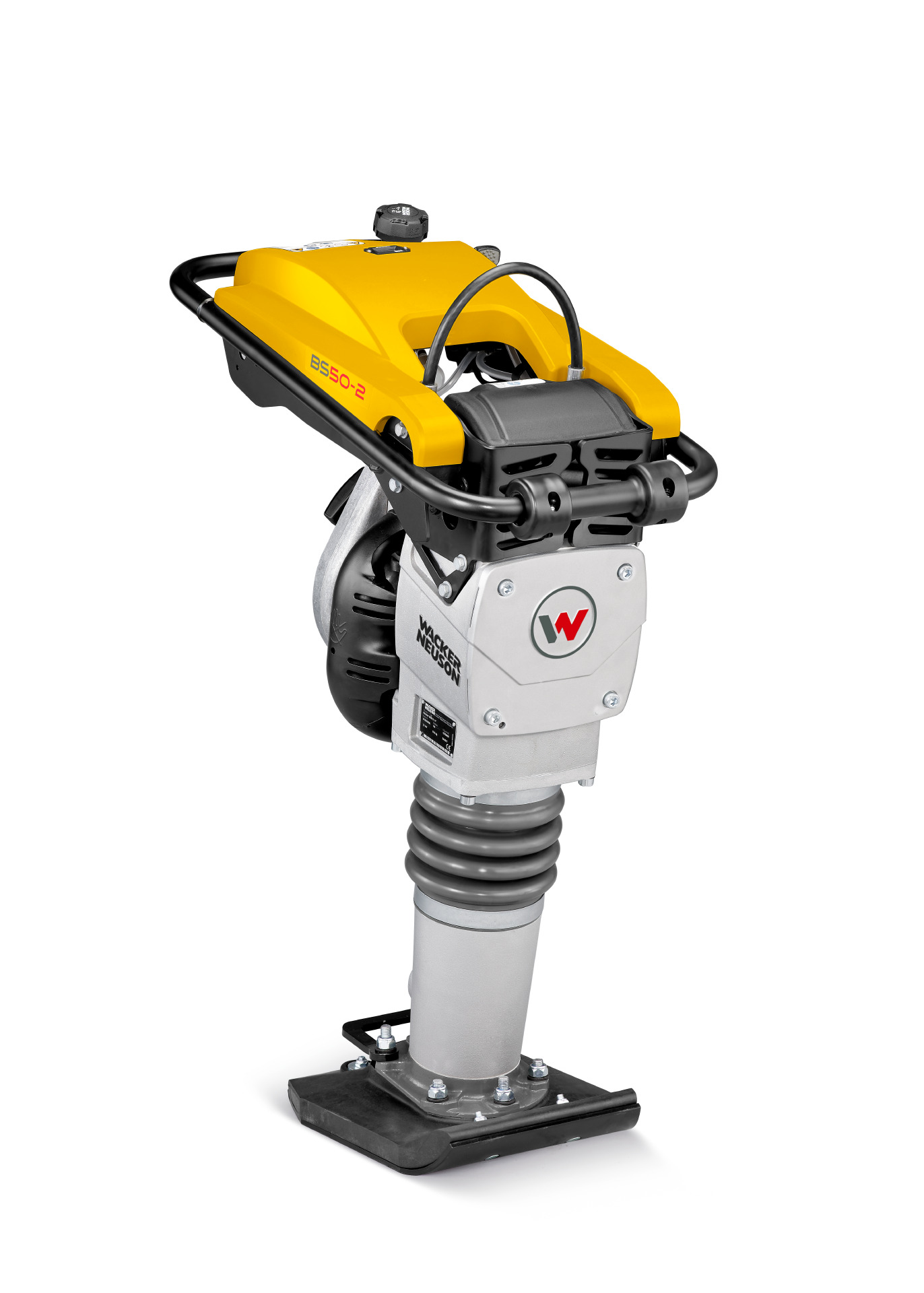Wacker Neuson BS 50-2 Trench Rammers

The Wacker Neuson BS 50-2 Trench Rammer is a popular piece of equipment for compacting soil in trenches and tight spaces. However, like any piece of machinery, it can encounter issues during use. Below are some common problems along with potential solutions:
1. Engine Won’t Start
Possible Causes:
- Fuel issues: Stale or incorrect fuel, low fuel levels, or clogged fuel lines.
- Ignition system failure: Faulty spark plug, damaged ignition coil, or broken wiring.
- Battery failure (if applicable): Low or dead battery.
Solutions:
- Ensure the fuel is fresh and meets the manufacturer’s specifications.
- Check the fuel filter and fuel lines for blockages.
- Inspect the spark plug for wear or dirt, and replace it if necessary.
- Test and replace the battery (if applicable) or check the battery connections.
2. Engine Stalls or Loses Power
Possible Causes:
- Fuel starvation: Clogged fuel filter or line.
- Air filter blockage: A dirty or clogged air filter can restrict airflow.
- Fuel quality: Contaminated fuel or incorrect mixture.
- Engine overheating: Lack of cooling or poor maintenance.
Solutions:
- Replace the fuel filter and clean the fuel lines.
- Clean or replace the air filter.
- Drain and replace contaminated fuel.
- Check the engine cooling system and ensure it is functioning correctly.
3. Excessive Vibration or Unstable Operation
Possible Causes:
- Worn-out shock absorbers: Trench rammers use shock absorption to reduce vibration.
- Loose or damaged parts: Engine mounting, frame, or compaction plate.
- Incorrect operating technique: Not properly balancing the machine during operation.
Solutions:
- Inspect and replace worn or damaged shock absorbers.
- Tighten loose bolts and screws, and inspect for any damage to the frame or engine mounts.
- Ensure the rammer is operated correctly, maintaining even pressure and posture during use.
4. Compaction Plate Doesn’t Vibrate
Possible Causes:
- Vibration mechanism failure: Faulty internal components such as the exciter mechanism or drive belts.
- Clogged or damaged piston: The piston may not be generating the required force.
- Low oil level or wrong oil type: Hydraulic oil is often used for the exciter mechanism.
Solutions:
- Inspect the vibration mechanism, including the exciter and drive belt, for wear and damage.
- Check the piston for any blockages or wear and replace it if necessary.
- Check and top off the hydraulic oil, and ensure it meets manufacturer specifications.
5. Excessive Oil Leakage
Possible Causes:
- Damaged seals or gaskets: Worn or cracked seals around the engine or hydraulic components.
- Overfilled oil reservoir: Overfilling can cause excessive pressure and leaks.
- Cracked oil pan or housing: Impact or wear could crack the oil housing.
Solutions:
- Inspect and replace any damaged seals or gaskets.
- Ensure the oil reservoir is at the proper level according to the manufacturer’s instructions.
- If the oil pan or housing is cracked, replace the damaged part.
6. Compactor Plate Doesn’t Make Full Contact
Possible Causes:
- Uneven compaction plate: The compaction plate might be bent or damaged.
- Improper adjustments: The machine settings or foot height might be wrong.
Solutions:
- Inspect the compaction plate for any visible damage or warping, and replace if necessary.
- Verify that the machine settings are adjusted according to the manufacturer’s guidelines.
7. Overheating
Possible Causes:
- Poor lubrication: Insufficient or incorrect oil.
- Blocked cooling vents: Dirt or debris blocking air intake or exhaust areas.
- Overload: Operating the machine for too long without sufficient breaks.
Solutions:
- Check the oil level and type, and change the oil if necessary.
- Clean any cooling vents or fans to allow proper airflow.
- Follow recommended operating cycles and avoid overloading the machine.
8. Unusual Noises
Possible Causes:
- Worn bearings or moving parts: Bearings in the drive or compaction system could be worn out.
- Loose parts: Bolts or components may have come loose during operation.
- Damaged piston or exciter: Any malfunction in the vibration mechanism can cause unusual sounds.
Solutions:
- Inspect and replace any worn bearings or moving parts.
- Tighten any loose bolts or parts.
- Check the exciter and piston for any damage and replace if necessary.
General Maintenance Tips:
- Regularly inspect the machine before use, especially the fuel, oil, and air filters.
- Clean the machine after each use to prevent debris from accumulating.
- Follow the maintenance schedule outlined in the user manual to ensure long-lasting operation.
By staying on top of maintenance and addressing issues early, you can extend the life of your Wacker Neuson BS 50-2 Trench Rammer and keep it operating at peak performance. If these solutions don’t resolve your issues, consider consulting the manufacturer’s manual or reaching out to a repair technician – That’s us!